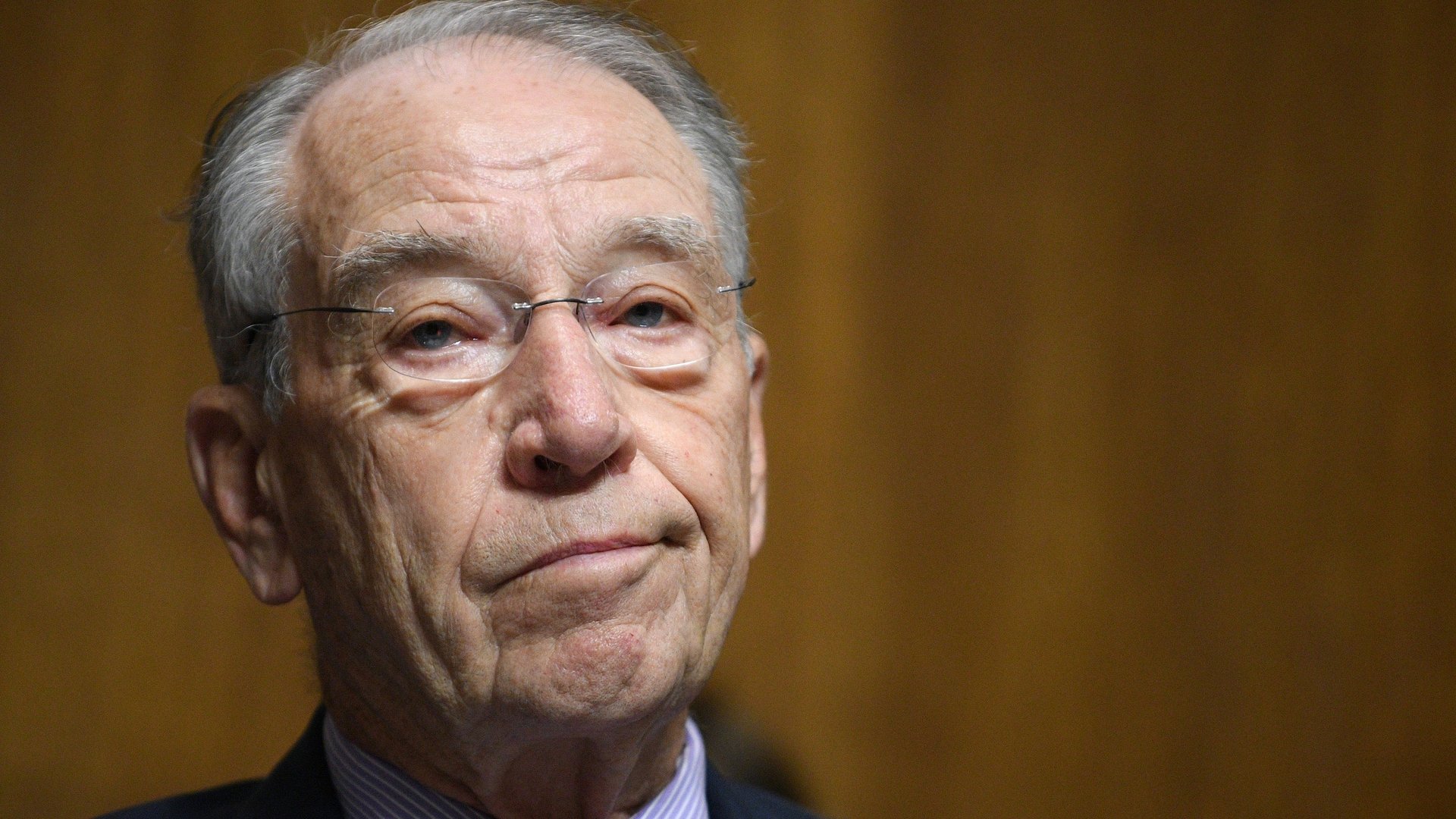Senators are going surrealistic to describe the Kavanaugh hearings
“It feels like Alice in Wonderland around here today,” Patrick Leahy, the Vermont Democrat, said during the Senate judiciary committee’s meeting on US Supreme Court nominee Brett Kavanaugh. “It’s almost surreal.”


“It feels like Alice in Wonderland around here today,” Patrick Leahy, the Vermont Democrat, said during the Senate judiciary committee’s meeting on US Supreme Court nominee Brett Kavanaugh. “It’s almost surreal.”
The fantastical nature of things was not lost on his colleagues, Republicans and Democrats alike, who attempted to wax eloquent today (Sept. 28) and find creative ways to describe the contentious process led by Republican chair Chuck Grassley.
Louisiana Republican John Kennedy called it “an intergalactic freak show” and a “grotesque carnival.” Kennedy, referencing Cormac McCarthy’s novel No Country for Old Men, said, “This is no country for creepy old men, or young men, or middle-aged men.”
And while Republicans and Democrats seem unable to agree on almost anything, they concurred on the Kavanaugh confirmation process marking a turning point in US politicial history.
This is the end of the rule of law,” Republican Lindsey Graham of South Carolina said, “the beginning of a process that will tear this country apart.” Looking to the future, he said, “There’s the process before Kavanaugh and the process after Kavanaugh.” Graham echoing Kavanaugh from earlier in the week, likened this new world to “the Twilight Zone.”
Leahy wasn’t far from that assessment when he said, “This judiciary committee is no longer an independent branch of government…we are an arm, and a very weak arm, of the Trump White House. Every semblance of independence has just disappeared. It’s just gone. That is something historians will look at and they will call it a turning point in this country.
Republican John Cornyn of Texas hearkened to history and referred to the communist-hunting McCarthy era of the 1950s, describing the current “circus-like atmosphere.” He called it “disgraceful,” a ”scandal,” “and cruel, reckless, indecent.”
All of this stems from, according to Senator Ted Cruz of Texas, the tribalization of the US, a deepening right-left ideological political divide. “We’re living in a divided time,” Cruz said. “There is an enormous amount of anger. There is rage. There is hatred, reflecting that rage, reflecting that anger…our polarized society is almost tribalized.”
Ranking Democratic member Dianne Feinstein, too, noted the high drama. She called the Kavanaugh vote “a real test for the US Senate and for our country, to see how we treat women and especially women who are victims of sexual assault.”
Sheldon Whitehouse, the Rhode Island Democrat, warned that the “Supreme Court is flying all the warning flags of a captured agency.” He said confirming Kavanaugh “will be a disaster for the court.” Whitehouse argued that Kavanaugh’s “partisan screed yesterday was telling.” He added, “Kavanaugh dodged and dissembled, ranted and raved, filibustered and prevaricated…I did not find him credible…I am horrified by what the committee has done.”
Whitehouse called the letter offered by Kavanaugh’s high school friend, Mark Judge, implicated in the alleged sexual assault of Christine Blasey Ford, saying he does not recall the incident, “a fig leaf,” concluded that the process was “botched.”
New Jersey Democrat Cory Booker, calling the confirmation process “a sham,” said, “This is not about partisanship. This is a moral moment in our nation…This toxic culture, this pernicious patriarchy in this country has to stop. They are watching this body right now,” Booker said of millions of sex-abuse victims. “The seat on the Supreme Court is not an entitlement…I cannot stomach that we are going to move forward.”
Orin Hatch, Republican of Utah, early in the morning, already shown had little patience for the process, saying, “We’ve had enough time on this to choke a horse.”
That’s something only one side might call a myth.